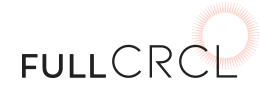Starting Solids: Tools + Resources
One of my favorite topics that I get to support families with is the what, when and how around starting solids.
As a Registered Dietitian, watching my own daughter start solids was so fun for me… I couldn’t wait to get her into the high chair and start using my Baby Bullet blend to make some homemade purees! Baby Led Weaning was just starting to gain popularity in Europe but hadn’t made it’s way to the states so we did primarily purees and had a ton of fun with solids alongside breastfeeding.
This was 10+ years ago, so I know the landscape has changed when it comes to getting evidenced based, practice guidance on how to introduce solids. So, here’s my recap and guide as a Registered Dietitian and International Board Certified Lactation Consultant of where to start when introducing solids to your breastfed (or combination fed) baby.
When is the best time to introduce solids to my baby?
You’ll likely be introduced to the topic of starting solids at your 4 month pediatrician visit. Your pediatrician will discuss signs of readiness for starting solids and how to introduce common allergens.
Signs of readiness can range for every baby! There is no evidence to support that earlier introduction of solids has any positive impact of health/nutrition status (as updated by the 2021 American Academy of Pediatrics guidelines) so there is no pressure to get your baby started earlier than they are ready for
We want to make sure baby is showing these signs:
- SITTING UPRIGHT: Baby should be able to sit unassisted to ensure their airway is protected
- HEAD CONTROL: Baby should be able to coordinate head and neck control
- INTEREST: Baby should be interested and curious about food! Often times babies will start “tracking” parents when eating (looking closely at what they are eating, make grabs at their food), this is a sign your baby is ready to be a foodie!
If your baby had met all of these signs, yay! They are ready to join the table and start solids.
What do I introduce first?
There are different “paths” you can take when it comes to starting solids, and just like in parenting there is no one right way, just the way that works best for you and your family.
SPOON FEEDING:
This is a more traditional approach where food is pureed and parent spoon feeds baby. As compared to Baby Led Weaning, there is less mess, less textural variation and you can usually control the amount of food baby actually eats.
BABY LED WEANING:
This approach allows for baby to learn to self feed from a variety of foods your family eats at home. Babies get great practice using their hands to self feed and explore many different flavors and textures.
HYBRID FEEDING:
Most of the families in my practice rely on a blend of the above methods for feeding. This allows baby to practice baby led weaning with some foods (such as yogurt, avocado, mashed beans, banana) but parents may choose to puree some foods that they find either more difficult to prepare with baby led weaning or feel more comfortable providing a pureed format (meat is one example).
Whatever method you choose is personal to you and your family.
How do I introduce them in a safe way?
There are some things to ensure you have lined up when you begin solids.
A great high chair with foot support that allows for good trunk support is ideal. You also may want to consider a high chair that will grow with baby over time. Below are two options that meet these needs:
A Mat and Open Cup help try to contain some of the mess; I love the EZPZ brands options that help support independent feeding. You’ll also want to get baby started on practicing drinking from an open cup (the cutest thing ever to watch!) where you can provide breastmilk or formula.
Silicone feeders these are great for breastmilk popsicles and berries, they can “chew” on them when they are teething and can help stimulate oral development
Other helpful notes about introducing solids:
1. Don’t put so much pressure on yourself - it’s food for fun before 1, prioritizing a positive, nurturing experience is always the priority vs trying to be perfect about introducing new foods
2. Embrace the mess. babies playing with their food is part of the experience so even if you’re a type A personality- try and let the mess go and wait until they are completely done to clean up (otherwise, you’ll just end up cleaning it up seven times in between)!
3. Prioritize putting foods in front of them that you and your family cook and eat often. Don’t stress so much on serving them foods that you would honestly never cook again just to hit “100 foods before 1.”
4. Download the ‘solid starts’ app so you feel confident in how to serve every possible food to your baby depending on their age, because how you serve certain foods change between six months, nine months, and a year. I also love to recommend Katie Ferraro’s Baby Led Weaning podcast and website! Fun fact she was one of my college nutrition professors as I was training to be a Dietitian :)
8. Don’t be afraid to add spices to your baby’s foods. We do want to avoid salt as much as possible at home while cooking until babies are about a year old because their kidneys are not fully developed yet, but using different spices is a great way to expose your baby to different flavor profiles and push their palate.
Products/resources you’ve loved as you’ve started solids? I would love to know!


